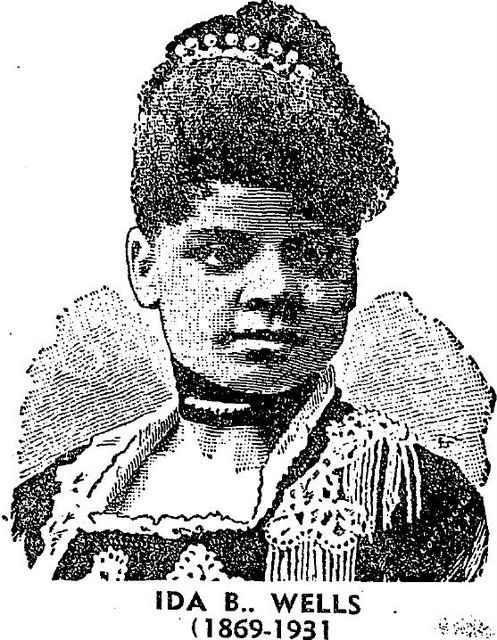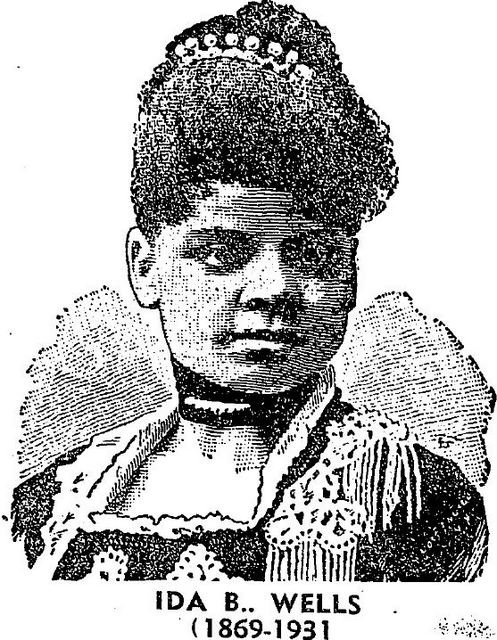[ad_1]
By Lisa Snowden-McCray, Special to the AFRO
Ida B. Wells, the intrepid journalist and Mississippi-native whose work exposed the horrors of lynching, is having a moment.
It’s a perfect storm situation brought together by a renewed debate over the role of the press, the recent opening of a memorial to lynching victims in Montgomery, Ala., an increased focus on the power of women’s voices and the ever-expanding role of the internet to connect people of color in ways that have never before possible.

“Wells’ genius lay in her ability to flip the script,” writes Yale African American history professor Crystal N. Feimster in an op-ed published just last weekend in the New York Times. “Casting White Southern men as the lustful rapists of Black women and the hypocritical murderers of innocent Black men. Alone, she was not able to stop lynching. But with the help of other black women, she did put mob violence on the reform agenda and brought to light the rape of Black women.”
Wells is also featured in a project that the New York Times is doing titled “Overlooked,” which focuses on the lives of women who were sidelined and silenced by the paper while they were alive.
It makes sense, then, that efforts to install a memorial to Wells in her hometown of Chicago have taken on a second life, too. Wells’ great-granddaughter, Michelle Duster, is helping lead the cause, which has been going on for several years.
Activist Mariame Kaba, says she first heard about Duster’s work on Twitter. She resolved not only to donate her own money to the cause, but also to encourage the 76.4 thousand people who follow her @Prisonculture Twitter account to do the same.
“I was pretty sure that a lot of other people also didn’t know about it and if they did know then they would want to support this,” she tells the AFRO. “It’s all been in the air about supporting Black women, trust Black women, all of the hashtags about that have been really coming up, especially since after the election. This is a concrete way for all the people who constantly are saying that they support Black women’s legacy and work to actually put their money where their mouths are.”
Kaba says that Wells’ life and work fly in the face of many who deride so-called “activist-journalism.”
“I have lots of friends who are journalists and I know that conservative, small ‘c’ journalism [has] this notion of a neutrality, that somehow as journalists you are not actually people who have opinions or that somehow your opinions mean that you are biased in some way,” Keba says.
“Ida B. Wells really kind of explodes that myth because she is somebody who was a journalist, she did write, she did use the power of words to speak truth to power, to raise awareness to offer calls to action.”
Here in Baltimore, Wells is the namesake of a downtown eatery, Ida B’s Table. Chef David K. Thomas, and his wife Tonya Thomas partnered with The Real News Network in 2017 to bring the modern-day soul food restaurant to life.
The two say that even though Wells never lived in Baltimore, they liked the idea of conversation and community brought about by her work as a journalist (the menu features “op-eds” instead of starters and sandwiches are “by-lines.”)
They approached the idea of using her as inspiration carefully, though. They didn’t want to mess it up or be disrespectful to her legacy.
“I said well first of all, she wouldn’t be in anybody’s kitchen,” Tonya says. “It should be more like Ida B’s table, it was the whole thing about bringing everyone to the table, it was the perfect place to bring different people together.”
She says it was important that they had her family’s blessing, which they got. Duster and other family members even traveled to Baltimore for the restaurant’s grand opening.
“Anytime you put anybody’s name on anything especially when it’s a real person, not a made-up character, someone like Ida B. Wells [and] what she meant in history, that was a concern to me because that makes us now have to really step up to that challenge,” she says.
The restaurant is only seven-months old, so the Thomas’ say they are still getting established. Eventually, though, they plan to support not only an existing scholarship, but also the monument.
“What we want to do is make sure we help support whatever is being done in her name,” she says.
As of April 30, the renewed interest in the memorial helped raise an additional $77,000. Duster tweeted that the group needed $125,000 to make their goal.
Learn more about the Ida B. Wells monument at idabwellsmonument.org.
[ad_2]
Source link

